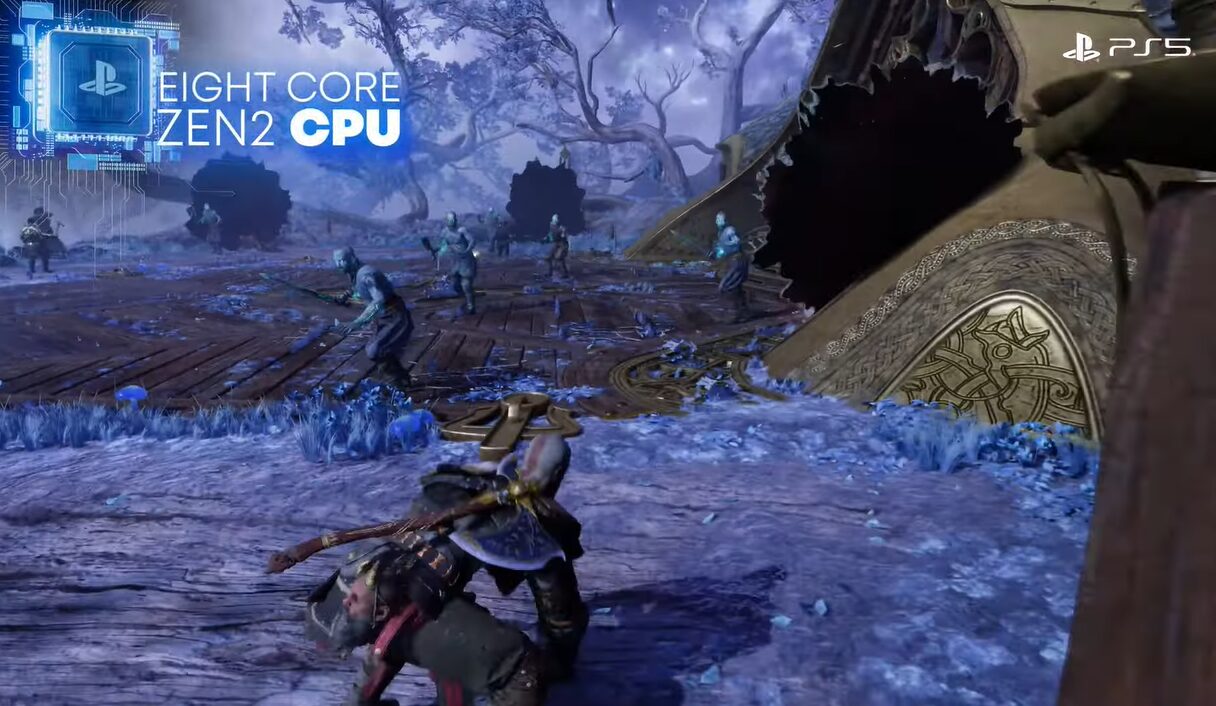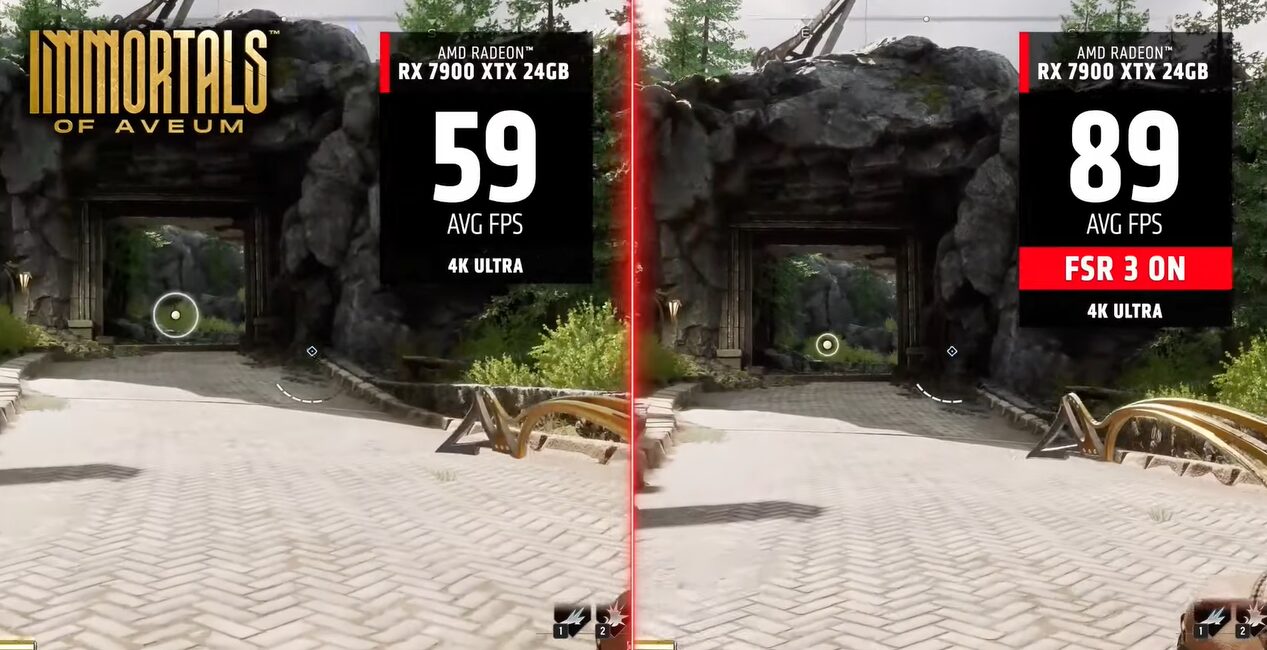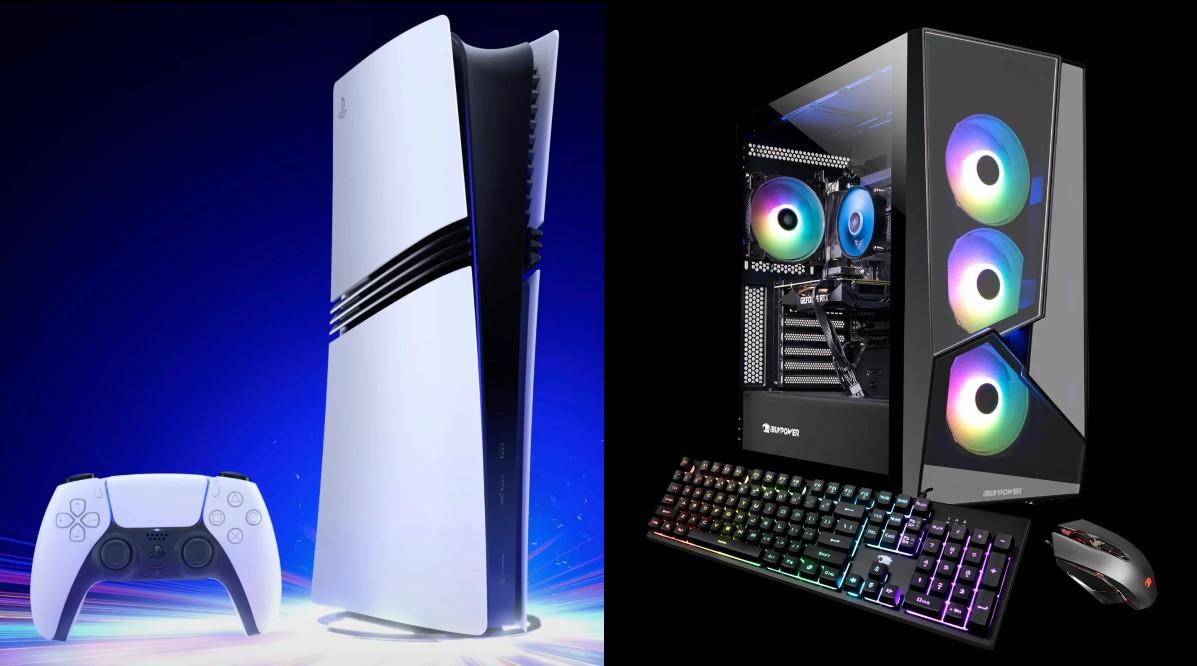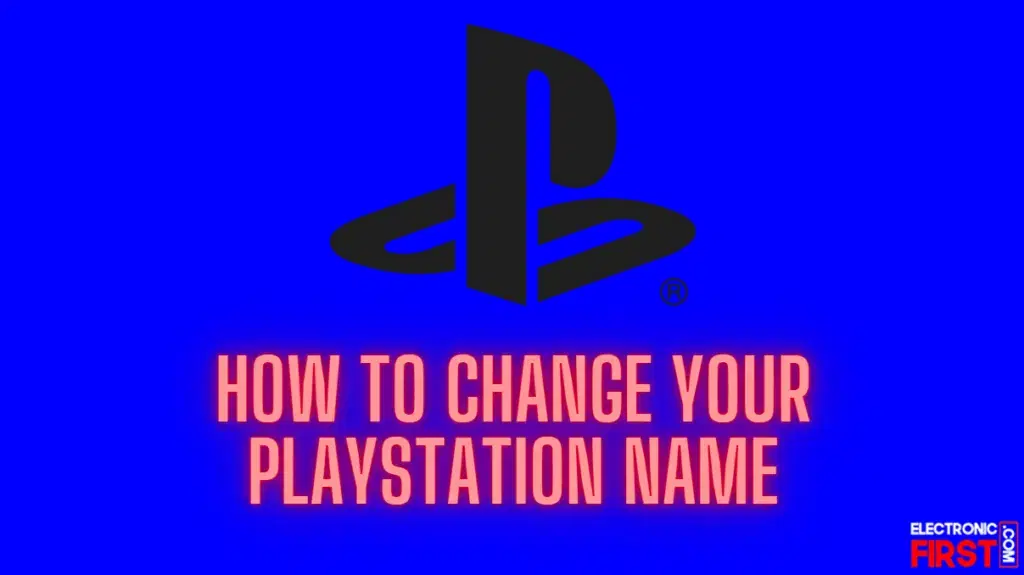It had been a debated thing about consoles versus PCs. And just when we thought that the battle was over for the time being, we now have confirmation of the upcoming PS5 Pro. It’s going to be released on November 7, 2024. The question is “Will the PS5 Pro be more Powerful than PC gaming?” Let’s break it down.
Here’s a simple PC vs. PS5 Pro comparison table, based on several notable features.
| Feature | PS5 Pro | Gaming PC |
| CPU | 8-core Zen 2, 3.5 GHz | Zen 4 / Intel 12th or 13th Gen CPUs, clocked over 5 GHz |
| GPU | Custom RDNA 3 with 60 Compute Units | Equivalent to RX 7800 XT or RTX 4070, often more powerful due to higher power budgets |
| RAM | 18 Gbps GDDR6 | Typically 32GB DDR4 or DDR5, higher clock speeds in PCs |
| Storage | 2TB SSD (PCIe 4) | PCIe Gen 4 or Gen 5 SSDs with larger capacities and faster speeds |
| Upgradability | None | Full upgradability—CPU, GPU, storage, etc. can be upgraded |
| Ray Tracing | Advanced ray tracing with RDNA 3 | More advanced ray tracing with high-end GPUs like RTX 4070 |
| Price | $700 | $1,000 or more for similar performance. |
| Performance | Optimized for gaming | Superior in raw power and customization |
| Gaming Experience | Optimized for smooth gameplay at lower power consumption | Higher performance but depends on game settings and hardware configuration |
| Flexibility | Limited to gaming and entertainment | Versatile—gaming, productivity, multimedia, and more |
| Customization | Minimal customization | Full control over hardware and software, mods supported |
Hardware: A Significant Leap, But Still Behind PCs
The PS5 Pro will feature a substantial boost in performance compared to the original PS5, primarily due to its upgraded GPU. It will reportedly have 60 compute units, similar to AMD’s RX 7800 XT, making it a powerful gaming machine. However, this doesn’t put it ahead of high-end PC setups.

PCs equipped with top-tier GPUs like the Nvidia RTX 4070 and above still outmatch the PS5 Pro in raw power. While the PS5 Pro’s custom RDNA 3-based GPU supports advanced ray tracing and AI-powered upscaling through PlayStation Spectral Super Resolution (PSSR), even with these enhancements, the performance is likely to be slightly behind comparable desktop GPUs like the RX 7800 XT and RTX 4070. PCs still benefit from higher memory bandwidth, better power management, and superior customization.
CPU: Aging Technology in the PS5 Pro

The PS5 Pro will retain the same eight-core Zen 2 CPU found in the original PS5, clocked at 3.5 GHz. Meanwhile, gaming PCs have already moved on to faster, more efficient processors, like AMD’s Zen 4 and Intel’s 12th and 13th Gen CPUs, which can clock above 5 GHz. This discrepancy means that while the PS5 Pro may handle most games well, it won’t match the versatility or future-proofing of a mid-to-high-end gaming PC.
Storage and Load Times: Not a Game-Changer
PS5 Pro Technical PresentationThe PS5 Pro is expected to feature a 2TB SSD, which is double that of the original PS5. It’s a decent upgrade for console users, but PCs can already utilize faster PCIe Gen 5 SSDs, which offer double the bandwidth compared to the PS5 Pro’s PCIe 4 storage. However, in real-world gaming performance, this difference may not be as noticeable, as both platforms provide excellent load times.

Flexibility and Upgradability: PC’s Winning Edge
One of the most significant advantages PCs hold over consoles is their upgradability. When newer hardware is released, PC gamers can upgrade specific components, like GPUs or CPUs, without having to buy an entirely new system. This modularity allows gaming PCs to stay relevant much longer, and their performance can often surpass that of consoles like the PS5 Pro by simply upgrading a single part.
Price Comparison
At $700, the PS5 Pro is also a great value for those who want to play games that are demanding – minus the hassle of a gaming PC. A PC with similar specs, say an RX 7800 XT GPU, and a mid-range Ryzen CPU, could easily run over $1000. PCs do much more than just gaming, too, including productivity, multimedia editing, general computing, and so on.
Gaming Experience: Optimization vs. Power
One area where consoles like the PS5 Pro shine is optimization. Developers design games specifically for the hardware. It allows them to fine-tune performance to get the most out of the system. This often results in smoother gameplay on consoles compared to similarly powered PCs, where games must accommodate various hardware configurations.

However, the flexibility of PCs allows for mods, higher framerates, and the ability to play games at ultra settings that even the PS5 Pro may not achieve. Professional gamers with high-end rigs will still find better performance on PC, especially as new GPUs and CPUs are released.
Will The PS5 Pro Be More Powerful Than PC Gaming?
From a technical point of view, PS5 Pro is a close competitor, but not a PC Replacement. The PS5 Pro is undoubtedly a powerful console and will offer an excellent gaming experience for those who want a plug-and-play system. PS5 Pro is no doubt a good improvement over the original PS5, particularly in graphics and storage. However, for those looking for the ultimate in gaming performance, customization, and upgradability, a well-built PC will always be more powerful and versatile. The PS5 Pro may close the gap in some areas, but for sheer flexibility and potential, PC gaming remains the top choice for gamers.







